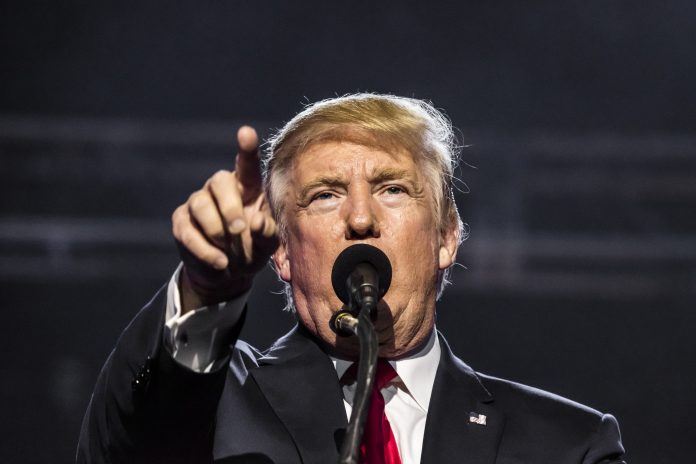There was no address by President Trump, who was refused entry into the House of Representatives by Majority Speaker Nancy Pelosi, who wants progress on #EndTheShutdown
In the absence of meaningful collaboration to end the ongoing partial government shutdown from the Executive Branch, Speaker Pelosi did not enable the State of the Union speech normally given by all sitting US Presidents, creating a historical precedent.
Why is the State of the Union important?
The speech is a promise and an assessment; of how the Executive branch has succeeded, of bipartisan collaborations, how the economy is progressing, taking account of individuals who are being recognized by the Executive branch and a moment to set the legislative agenda for the rest of the year.
It is also a traditionally hopeful, contemplative address which relays how successfully a President is leading the nation and working with their colleagues – a restorative moment, to re-emphasise campaign promises and establish new ones.
It was Calvin Coolidge’s 1923 speech that was heard throughout the US, beginning a tradition which following Presidents altered and strengthened. Harry S. Truman’s 1947 address was the first to be seen across the nation, whilst Roosevelt’s address in 1936 was the first to be delivered in the evening. Ronald Reagan is the only other President apart from President Trump, to have delayed in delivering the State of the Union – due to the Space Shuttle Challenger disaster that led to a speech purely addressing the events of that moment.
The State of the Union speech should mirror the pulse of the nation, and normally alter it. President Trump did not put his hand out to take it in the first place.
Why did Speaker Nancy Pelosi stop him?
The move by Speaker Pelosi to prevent President Trump making a State of the Union address is in response to the consistent focus of the Executive, and a majority of Republicans, on the funding of his border wall.
As the Shutdown was going on, Nancy Pelosi asked me to give the State of the Union Address. I agreed. She then changed her mind because of the Shutdown, suggesting a later date. This is her prerogative – I will do the Address when the Shutdown is over. I am not looking for an….
— Donald J. Trump (@realDonaldTrump) January 24, 2019
Nancy Pelosi formally reached out to the Executive Office on the 3rd and 16th January, with attempts at re-opening the government via a “mutual” collaboration, as quoted in the letter released by Speaker Pelosi Wednesday.
There was an interim meeting on the 9th of January in which President Donald Trump was seen to walk out of a meeting with congressional leaders Charles Schumer and Nancy Pelosi. On Speaker Pelosi’s declaration that she did not support his wall funding or the conceptual framework behind it, the President left the room.
Democratic Senate Minority leader Schumer said:
“He just got up and said we have nothing to discuss, and he walked out.”
In her letter to the President on January 23rd, discussing the State of the Union, she said:
“I said we should work together to find a mutually agreeable date when government has re-opened and I hope that we can still do that.”
Speaker Pelosi is supported by the majority of Democratic Congress, who are focusing their critique of the shutdown on the federal workers impacted by loss of security whilst the Republicans siding with President Trump continue to encourage a hyper-focus on border security.
Two bills were to be heard today, 24th January 2019, both in the House and the Senate. Democratic Senator Chris Van Hollen has been vocal about the necessity of succeeding on passing these bills, one of which would re-open government until the 8th February 2019 in order to stop 800,000 federal employees from losing their paychecks for a second time.
Tomorrow the Senate should vote “yes” on a narrow proposal to reopen the government until February 8th, pay our civil servants, and find an end to the shutdown. It’s time for Senate Republicans to vote to stop punishing federal workers and the country. pic.twitter.com/Jw3cgOd7Wr
— Chris Van Hollen (@ChrisVanHollen) January 23, 2019
Bills need a 60% majority to pass through Congress, which was conjured by bipartisan politics to push the 10th attempt at a clean-funding bill through in a 234-180 vote: due to fund the government till September 30th.
However, federal workers will still be without their paychecks on Friday, as it is too soon for implementation.
The President continues his wall-focused campaigns to sway a higher percentage of Congress, assuring journalists in press conferences last week that the Federal employees are supportive of his stance – in response to a question on landlords beginning to evict people, he replied that they will not. There was no address by President Trump regarding procedure for how to navigate this situation.
It is currently unclear if the government will re-open before the end of January.











